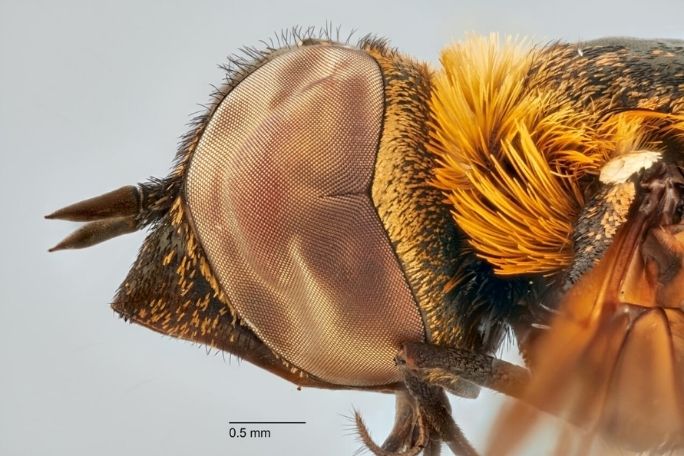Lesson summary
Students explore the roles of decomposers and pollinators. Students explore the processes of decomposition and pollination, and devise their own small role-play activities to demonstrate these processes. They then use the iNaturalist app to identify species as being either pollinators or decomposers. This lesson combines different methods of sharing information, such as through slides and clips as well as through role-play and song-and-dance to incorporate different ways of conveying information.
Learning intentions:
Students will...
- understand the role pollination plays in the ecosystem
- understand the role of decomposers in the ecosystem
- understand that song and dance can be used to pass on scientific knowledge.
Success criteria:
Students can...
- explain the process of pollination and decomposition
- act out the process of pollination and decomposition
- work independently and collaboratively
- use the iNaturalist app to identify animal species.
Lesson guides and printables
Lesson details
Curriculum mapping
Australian Curriculum content descriptions:
Year 5 English:
- use appropriate interaction skills including paraphrasing and questioning to clarify meaning, make connections to own experience, and present and justify an opinion or idea AC9E5LY02
- Plan, create, rehearse and deliver spoken and multimodal presentations that include relevant, elaborated ideas, sequencing ideas and using complex sentences, specialist and technical vocabulary, pitch, tone, pace, volume, and visual and digital features (AC9E5LY07)
Year 5 Science:
- Examine how particular structural features and behaviours of living things enable their survival in specific habitats (AC9S5U01)
- Write and create texts to communicate ideas and findings for specific purposes and audiences, including selection of language features, using digital tools as appropriate (AC9S5I06)
Year 6 English:
- identify responses to characters and events in literary texts, drawn from historical, social or cultural contexts, by First Nations Australian, and wide-ranging Australian and world authors (AC9E6LE01)
Year 6 Science:
- Investigate the physical conditions of a habitat and analyse how the growth and survival of living things is affected by changing physical conditions (AC9S6U01)
- Write and create texts to communicate ideas and findings for specific purposes and audiences, including selection of language features, using digital tools as appropriate (AC9S6I06)
Year 5 and 6 Drama:
- explore ways to combine the elements of drama to communicate ideas, perspectives and/or meaning in improvisations, devised drama and/or scripted drama AC9ADR6D01
Syllabus outcomes: EN3-1A, ST3-4WS, DRAS3.1.
General capabilities: Critical and creative thinking, Literacy, Digital Literacy
Cross-curriculum priority: Sustainability
Relevant parts of Year 5 English achievement standards: Students contribute actively to class and group discussions, taking into account other perspectives.
Relevant parts of Year 5 Science achievement standards: Students analyse how the form of living things enables them to function in their environments, and communicate their ideas and findings using multimodal texts.
Relevant parts of Year 6 English achievement standards: Students contribute actively to class and group discussions, using a variety of strategies for effect.
Relevant parts of Year 6 Science achievement standards: Students describe and predict the effect of environmental changes on individual living things. Students communicate ideas, methods and findings.
Relevant parts of Year 5 & 6 Drama achievement standards:Students explain how dramatic action and meaning is communicated in drama they make, perform and view.
This lesson is part of the wider unit of work Backyard Bush Blitz – Years 5 & 6
Resources required
- A1 and A4 paper
- Agree/Disagree Signs (or create your own)
- Bush Blitz Slides
- Pollination and Decomposition Factsheet
- Internet-connected devices
- Pen and paper
- Student Worksheet – one copy for each student
Skills
This lesson is designed to build students’ competencies in the following skills:
- Communication
- Collaboration
- Creativity
- Critical thinking
- Cultural understanding
- Digital literacy
- Initiative
Additional info
Time required: 145+ mins
Level of teacher scaffolding: Medium – facilitate discussion and lead students in activities
This is an original Cool+ lesson.


Welcome back!
Don't have an account yet?
Log in with:
By signing up to Cool.org you consent and agree to Cool's privacy policy to
store, manage and process your personal information. To read more, please see
our privacy policy here(Opens in new tab).
Create your free Cool.org account.
Many of our resources are free, with an option to upgrade to Cool+ for premium content.
Already have an account?
Sign up with:
By signing up to Cool.org you consent and agree to Cool's privacy policy to
store, manage and process your personal information. To read more, please see
our privacy policy here(Opens in new tab).